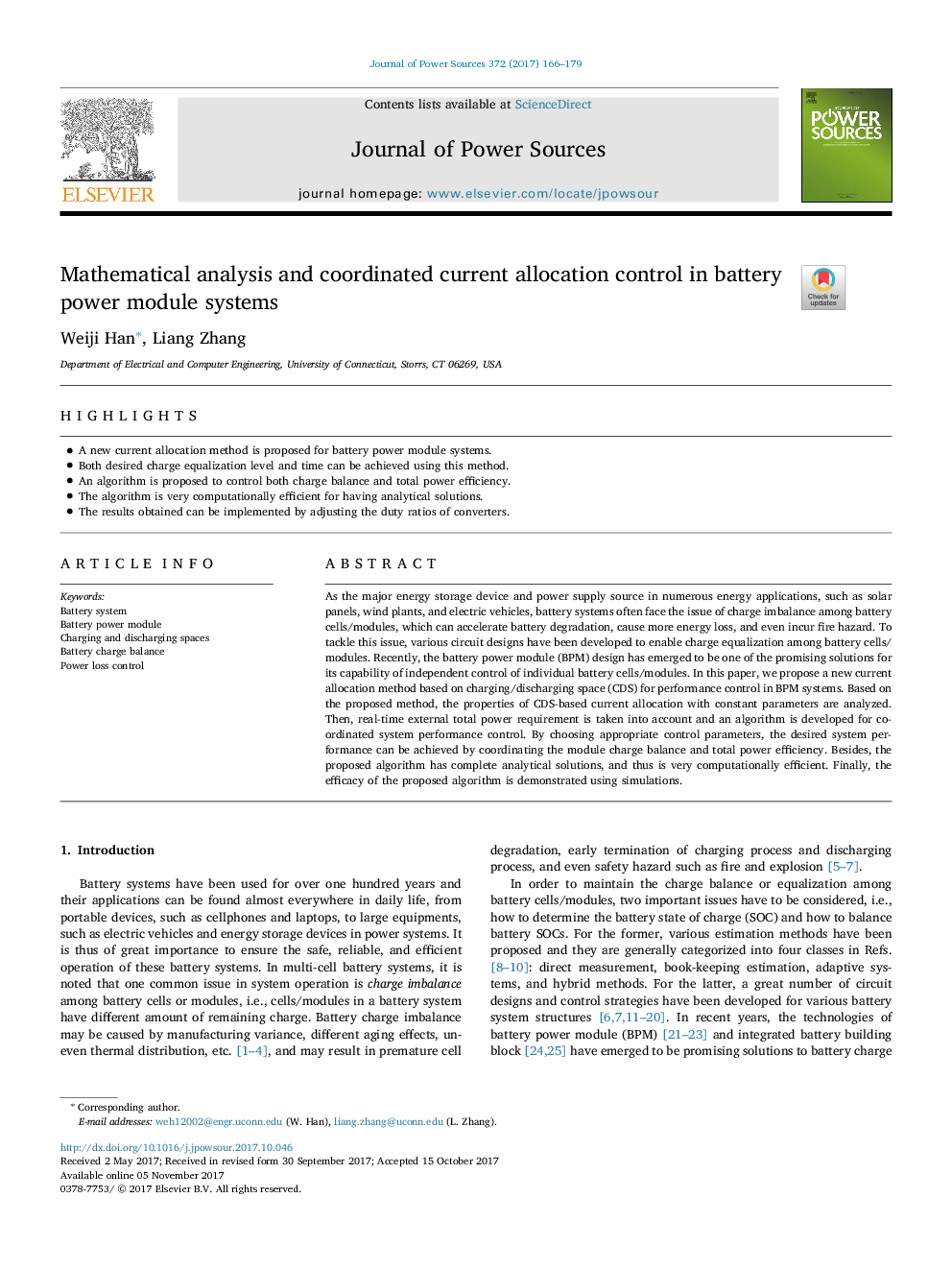ترجمه فارسی عنوان مقاله
تجزیه و تحلیل ریاضی و کنترل تخصیص فعلی در سیستم های قدرت ماژول باتری
عنوان انگلیسی
Mathematical analysis and coordinated current allocation control in battery power module systems
| کد مقاله | سال انتشار | تعداد صفحات مقاله انگلیسی |
|---|---|---|
| 142796 | 2017 | 14 صفحه PDF |
منبع

Publisher : Elsevier - Science Direct (الزویر - ساینس دایرکت)
Journal : Journal of Power Sources, Volume 372, 31 December 2017, Pages 166-179
ترجمه کلمات کلیدی
سیستم باتری، ماژول قدرت باتری، فضاهای شارژ و تخلیه تعادل شارژ باتری، کنترل از دست دادن قدرت،
کلمات کلیدی انگلیسی
Battery system; Battery power module; Charging and discharging spaces; Battery charge balance; Power loss control;

